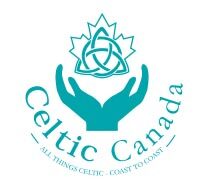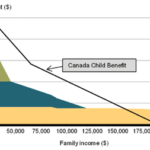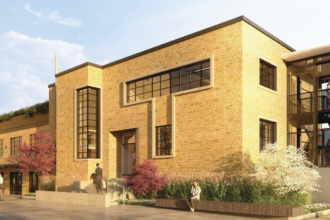You’re considering buying, concerned about what you can afford and debating whats the best move forward!!
Its pretty well known that the Toronto market is on fire and has been for a while now. Freehold prices in most area of the city are at prices levels leaving first time home buyers scratching their heads wondering if they will ever get in to the market!!
With the increased price levels in the freehold market a lot of buyers are shifting their attention to the condo market which is now also starting to see increased prices, especially with low rise boutique style condo buildings, lofts and townhouses.
If for now a condo is not your property type of choice, there is an alternatives to consider when getting into the freehold market, which is a great investment, and prove very beneficial in the long term.
SECOND SUITES
A common method to consider is to look for a property with an existing second suite or to add a second suite to the property, for example a basement apartment!!
A secondary suite is a private, self-contained unit within an existing dwelling. It must have its own bathroom, kitchen, living and sleeping areas. The secondary suite is usually created in a dwelling originally designed to accommodate a single family. The most common being a basement suite.
Basement suites are very common throughout Toronto. The city recognizes the need for more housing while also encouraging density. Dating back to the late nineties the laws in relation to second suites have been a bit, for and against, but as it stands today the city of Toronto permits basement suites in all detached and semi-detached houses, subject to a number of different bylaws and rules.
While basement suite are allowed, the reality is a high percentage of all basement suites throughout the city may not be considered legal as they may not be up to local and provincial building, fire and safety standards.
Also referred to as an accessory apartments, nanny suite or an in-law suite, some property owners with none legal second suites may have no intention in bringing their second suite up to the proper standards and building codes. Purchasing a property with the intention to rent a none legal second suite has a number of risks to be concerned about.
SOME OF THE RISKS INVOLVED:
• If a fire or flood occurred, you could be held responsible.
• Your lender may not recognize the income associated with an apartment that isn’t considered legal.
• Anyone can make a request to the city to have your second suite inspected and the city may request you bring the suite up to code. This may result in a lot of time and expense to legalize the suite.
• Make sure your insurance company knows what’s really going on in the house, never lie to your insurance company.
• Sometimes, properties containing a second suite are found during a routine neighbourhood inspection by a city official, and the city must follow up on this discovery.
At the end of the day it is best to take action to ensure your basement suite is legal, safe and up to proper codes and standards.
CREATING A NEW SECOND SUITE OR UPGRADING AN EXISTING SECOND SUITE
Navigating the property market with the intention to create a new or update an existing basement suite can prove to be a smart and prudent way to get in to the property market. Throughout Toronto depending on the condition and status of the basement apartment, most could rent from anywhere between $800 up to around $1,400 per month.
For a second suite to qualify as a legal unit, it must meet:
• residential zoning requirements;
• property standards;
• occupancy standards;
• health and safety requirements and fire and electrical codes
As a first time home buyer the minimum percent downpayment requirement is 5% up to $500,000 and 10% from $500,000 up to $1,000,000. An example when considering this option using a minimum downpayment would look as follows.
Detached Bungalow
Purchase price = $650,000
Monthly utilities & fees = $300
Property tax per month: = $250
Minimum downpayment: 6.15% = $40,000
Land transfer tax = $12,475 (Includes rebate for first time buyer & second LTT for Toronto)
Loan amount = $631,960
Interest = 2.7% @ 25 years
Monthly Mortgage payment: $2,894.29
Average rental income from basement suite $1000
Total monthly payment including utilities & tax = $3,444
Minus average basement suite rental income, $1,000
Equals, new total monthly payment = $ 2,444
This monthly payment can reflect an average 2 bed rental payment throughout Toronto.
Note: These numbers are approximate and may relate only to certain neighbourhoods throughout Toronto. These number however could reflect neighbouring cities of Toronto throughout the GTA.
Canada Housing and Mortgage Corporation (CMHC) costs are rolled in with the monthly mortgage payment. In this example that insurance cost is $21,960.
This number also depends on the amount of downpayment.
Costs to consider when entering the market
Example using a purchase price of $650,000.
Minimum downpayment: 6.15% = $40,000 (CMHC costs are rolled in to the monthly payment)
Land transfer tax = $12,475 (Includes rebate for first time buyer & second LTT for Toronto)
Closing & adjustments estimated $2,000.
Second suite renovation costs ??
Total estimated costs to enter the market $54,500 plus second suite renovation costs!!
Renovation costs for secondary suites must also be included when initially considering implementing this strategy. Those costs will depend on the condition of the potential basement suite. Working with a Realtor with knowledge in this area is crucial.
If you’re considering having a basement suite to help offset some mortgage costs there are a number of requirements to consider.
There are five basic requirements that must be met before an authorized second suite can be created.
• The principal residence must be at least five years old.
• The house must be detached or semi-detached. (there are some additional rules and exceptions for row-houses)
• The exterior façade of the house cannot be significantly altered.
• The second suite must occupy a smaller area than the rest of the house and it must be a single, self-contained dwelling. It must contain proper kitchen and bathroom facilities and it must also have a separate entrance.
• The property must meet parking requirements. (except in the former city of Toronto, where they recognize the limited parking available)
If there’s a small discrepancy in any of the above requirements, you may be able to apply to the Committee of Adjustments for a minor variance. To ensure that your suite is legal you’ll also need to ensure you comply with zoning by-laws, apply for a city building permit and pass all inspections. Meet all electrical safety codes via an inspection with the Electrical Safety Authority (ESA) and meet all fire safety standards.
The benefits of having a second suite is one, providing affordable rental accommodation, two, first-time homebuyers have that extra income needed to allow them offset some of their mortgage costs which makes housing more affordable in high-cost areas and three, having a legal second suite increases the value of the property.
When looking for properties with the intention of having a legal basement suite a tip to help lower construction costs is always look for a basement that already has the correct to code basement ceiling height. A minimum ceiling height is 6’11” which is allowed to be reduced to 6’5” underneath beams and ducts. Having to lower and underpin a basement can blow a renovation budget. Properties that already have a separate entrance can save on costs also.
The link below provided by the City of Toronto is a step by step guide to creating or updating a second suite.
Second suite step by step guide http://www.secondsuites.info/Homeowners_ Guide.pdf
Creating Or Updating A Basement Suite









